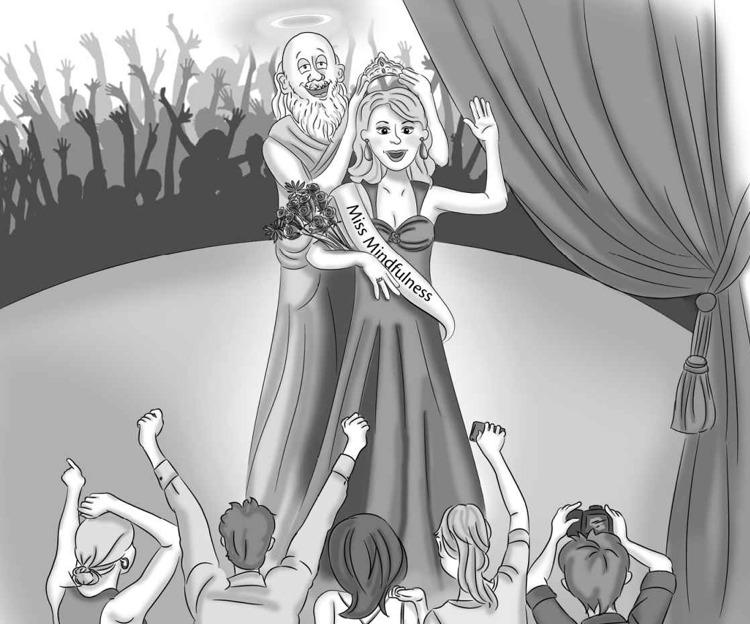
Well Being
Struggling with Burnout? Here’s one simple question to ask yourself…
Lately I’ve been thinking a lot about burnout. It’s part of how I market myself, it speaks strongly to the demographic of coaching client I try to reach. And it’s an epidemic. One that many organizations struggle to address. One of the organizations I currently work with reports a burnout rate close to 90% for its staff. There’s loads of guidance out there on building resiliency, tips on self-care, tips on time management. And it’s all wonderful – but I don’t think it speaks to the root cause. I’ve worked incredibly hard on things in the past that were passion projects – and I felt renewed and excited rather than depleted at the conclusion of these. Are you giving from a place of joy or fear? I’m convinced that burnout is less about how much you’re giving and more about the energy of the place you’re giving from. Are your efforts coming from a place of joy, or a place of fear? It’s a very interesting question to consider. And if I’m super honest, lately it’s been fear for me. And as I result, I’ve been feeling off. Lethargic, tired, drained, frustrated, purposeless, aimless. Which is tough to admit for me considering the name of my business is True North. As I result, I’ve shied away from writing this blog. I haven’t felt like myself and I haven’t had the energy. And I couldn’t figure out why. And then the other day the answer hit me squarely in the face like a ton of bricks. One of the programs I facilitate is a journey of leadership for an energy client. It’s one of my favorites because it goes deep. It speaks to things like learner mindset, emotional intelligence, psychology, triggers, psychological safety. The inner journey of leadership if you will. My cofacilitators are amazing. One is a guy I’ve worked with before during a previous stage of my career. He’s probably the most knowledgeable and accomplished coach and facilitator I’ve ever worked with. He’s got numerous degrees, he’s got numerous PHDs. Loads more experience than me, plus he’s super articulate to boot. When we give from a place of fear, we invite burnout in I’ve ended up working with him more than usual the last few months. Great, right? What an incredible opportunity to learn from someone more experienced and accomplished than myself. I keep telling myself that, because intellectually I know that’s the “right” way to think about this situation. But that’s not what I’ve been doing. What I’ve realized in the last week or so, is that I’ve been silently and unconsciously comparing myself to him. I’ve been silently sabotaging myself. There’s a subtle voice that’s been carrying on unchecked during our work together, softly whispering into my ear things like: As a result, I’ve been over-preparing for my sections. Second guessing every word coming out of my mouth. Viciously chastising myself after a day of delivering that it wasn’t better. Worrying about how to change my style
February 19, 2025
|
6.4 min read

Difficult conversations, Relationships, Well Being
For my fellow conflict avoiders out there – here’s a powerful reframe
The last few months have been interesting ones, and much more challenging than usual. I’ve found myself in the middle of several conflicts and am still actively navigating my way through some of them. Like most human beings I don’t like conflict and have often looked for ways to avoid it in the past. Maybe I avoid having the difficult conversation or just avoid the person entirely. Navigating these murky conflicts has also been a struggle because I crave certainty. It’s often easier to handle a bad outcome if we know what the outcome is. The process of navigating through ambiguity, of uncertain outcomes, of not having closure can create a lot of angst. It’s been hard to sit with. But I’ve made a conscious choice to lean in rather than run and to get more comfortable with the things that are difficult to sit with. So sit I must. It’s been challenging too because I value relationships. I pride myself on showing up as a relationship-oriented person. I’ve worked hard to cultivate that over the course of my career – early on I got feedback that I tended to focus on my goals and objectives while ignoring that was important to others. I took the feedback seriously. I worked hard to bring more balance into my approach. To not be the kind of leader and colleague who only focused on task at the expense of relationships. To model servant leadership. To show up as a true collaborator with my peers. To put people first. Our inner critics will scare us out of conflict if we let them But no matter how much work I’ve done and no matter how many tools I have in my belt – all this outer turbulence has still managed to kick up inner turbulence in my mind. My inner saboteur has grown louder and louder as the conflict intensified. Maybe I haven’t worked hard enough on the feedback from early on? Maybe I’m bad at relationships after all? I should be better at difficult conversations at this point in my life. I should have learned all these skills by now. What kind of coach am I if I can’t practice what I preach? My saboteur has been using every trick in the book to get me to run away from the hard work and just throw in the towel. Conflict is scary after all. It’s funny how the mind works and how it plays tricks on us. For a long time, I think I viewed my worth as a human through the lens of my accomplishments. How much money did I earn this year? How many fortune 100 clients do I have? How many times have I had articles published? How many certifications do I have? These were the benchmarks by how I measured my success. And I say “were” very intentionally because I don’t think about these things so much anymore. I’ve learned to let go of many of these metrics as a
October 29, 2024
|
7.7 min read

Spirituality, Well Being
What it really means to rest (hint: it’s not about fancy self-care)
We all know theoretically we need to get plenty of rest. Self-care is a big theme these days, and there are plenty of reminders about how much sleep we need, exercise routines we could be doing, foods we should be eating and an overarching meme that we need to be kinder to ourselves, whatever that really means. And then there’s reality, which often bears no resemblance. I’ve been thinking about this quite a bit the last week, as a chronic condition I have has flared up again, often triggered in the past due to stress and lack of sleep. Interestingly our bodies have a way of sending us messages that we often try to ignore. Because of this flare up, it’s prompted me to rest. I toned down my activities; I’m spending most evenings in, trying to eat as healthy as I can, getting my yoga class in every day, making sure I head to bed early. I’ve eased up on the work front, being careful not to commit to too many things. I let go of being overly responsive on email. On the surface, I look rested. My skin even has a more youthful glow! But on the inside, not so much. Our minds will sabotage our restfulness On the inside I’m plagued with worries. Worried about how long this flare-up will last, worried that I’m not doing enough ongoing business development and marketing. Worried that I’m about to rebrand my career coaching practice as “burnout coaching” and worried that I won’t be able to attract new clients that way. Worried about my friendships and my key relationships in life, am I putting in enough effort? I cleared my mind of work finally and then I started ruminating about a specific friend and how I had texted her a few times and she hadn’t responded. Maybe she’s mad at me? I haven’t been super communicative recently and I haven’t reached out all that much. Maybe this is her passive aggressive way of sending me a message? Maybe I should call? But then why should I, that’s codependent behavior. I’m tired of having to make the effort. She should text back… I started to recognize that in the absence of work problems, my mind had fixated on this friend in the obsessive, compulsive way the mind often does so that it has something to do. I willed it to stop. And then I started noticing my office library needed to be redecorated and found myself aimlessly scrolling on amazon, looking for new rugs. Nothing looked good. I’ve now sent three back just in case you were wondering and I’m no closer to achieving that carefree boho look that I crave. We have to learn to receive rest And then I realized something very important about rest. It’s not something we necessarily achieve through physical means, although good practices like getting the proper amount of sleep are helpful in many respects. It’s something we must allow ourselves to receive, to truly
July 31, 2024
|
5.6 min read

Leadership, Productivity, Well Being
The Next Time You’re Guilted into Saying Yes, Think About This
A lot of my coaching clients struggle with boundaries. I suppose it takes one to know one. Like any good co-dependent, it’s the area I’ve probably had to do the most work on. I’ve gotten considerably better at managing boundaries over the years, which has resulted in managing expectations with clients more effectively, as I’m much more upfront about what the role of a coach is and isn’t and have worked hard to not take responsibility for my coaching clients’ learning and growth. It’s improved family relationships and friendships, as I’ve gotten clearer on what healthy relationships look like, and as a result, no longer spend a lot of time obsessing about things or trying to control things that can’t be controlled. And then every once in a while, I get triggered. It’s inevitable; it happens to us all. And it happened to me the other day when I was asked by a colleague to help them out on something they need to learn to take responsibility for themselves. Normally I would have let the guilt push me into saying yes. But something interesting happened instead. I got visibly mad, and I found myself stomping around my office and complaining to my husband. I got mad because I value fairness and accountability and always strive to be the kind of person who takes her fair share of the load. I got even madder because I’ve noticed a pattern of this individual playing the victim and manipulating others in the spirit of “collaboration” to get them to step in on a moment’s notice and bail them out. I was mad at her, and I think I was also mad from a cumulative effect of this behavior – over the course of my career I’ve often felt obligated to step in and save the day for others who I have judged (rightly or wrongly) to be stupid, lazy, weak or selfish. I’ve felt like I had no choice but to help, and inadvertently built up a pool of smoldering resentment, as I erred to compromise myself and my values rather than risk being branded as unhelpful. Look under the guilt and anger, what’s the underlying need? Experience has taught me there’s normally something we need to look at within ourselves when we experience such a visceral reaction. And the interesting thing about anger is there’s normally something sitting under it that’s begging to be healed. So I looked. And then I looked some more. And then I realized what this was really about. It was really about approval. We often confuse manipulation with collaboration And then I remembered a 360 I had done a long time ago, a couple of years after I had moved into leadership development. My colleagues had provided anonymous feedback. Their perception of me wasn’t stellar – I was completely focused on task and results, with no room for relationship. And I prioritized my goals and deliverables above everything else. It was a blindspot. I was so desperate
July 10, 2024
|
5.2 min read

Emotional Intelligence, Leadership, Spirituality, Well Being
Want to feel more joyful? Think about this.
Our failure to know joy is a direct reflection of our inability to forgive. Charlotte Jojo Beck I came across this quote the other day and it caused me to really pause and think. As human beings, we tend to look at joy as something that’s attained once we’ve completed a series of steps. I see this a lot in my coaching practice. I’ll have joy when I get this promotion. I’ll be able to tap into joy when I no longer work for this horrible boss, or when I feel more confident in my skillset. I’ll have joy once I understand what my purpose and my true path on earth really is and have a plan for making it happen. It’s not wrong to seek change, to want to grow or to want to improve our circumstances. The problem is in thinking that “fix” alone will solve the problem of not having enough joy in our lives. Our mental construct often frames joy as something we must earn. The truth is joy is accessible now – in our imperfect lives, our imperfect careers, our imperfect leadership, our imperfect team and family dynamics. The issue is that we can’t often access it because we’re too busy blaming ourselves or others for the perceived problems in our lives. Forgiveness is often an inside job Beck’s quote speaks to the path we need to take to access what’s already available to us. And more often than not, the person we need to forgive the most is ourselves. Forgiveness is about letting go of the protective armor Or maybe anger and resentment is projected outwards at the people around us. We find ourselves locked into judgment and blame of others for the things they have done to us. The things we have been subjected to – unfair expectations, abuse, trauma, bad leadership, bullying, being taken advantage of. The list could go on and on. Perhaps it shows up as passive aggressiveness or full blown aggressiveness with others. Or maybe avoidance. Forgiveness begins with the intention to let go of the armor of blame and defensiveness and a willingness to touch the vulnerability that sits underneath the anger. Perhaps it’s the shame of having been humiliated publicly. Or of having been abandoned and feeling isolated and unwanted. Or the regret and shame of not standing up for ourselves with a difficult person. When we can face that vulnerability and meet it with compassion and love for ourselves, we find ourselves on a much more joyful path. For a long time, I carried a lot of anger and resentment about a previous work situation. It was years ago, when I had just transitioned my career, and found myself in a situation where I had been set up to fail. It wasn’t until I really leaned into the feeling that was sitting under the anger – humiliation, and allowed myself to feel it without trying to push it away, that I could let it go.
June 20, 2024
|
4.4 min read

Authenticity, Mindfulness, Well Being
Be Careful Who You Put on a Pedestal
The last few weeks have been interesting ones – for a good chunk of March my husband and I took a vacation with my parents to Africa to go on safari. I’ve been in a reflective place since then, thinking about the fun and excitement of the trip, but also thinking about how far I’ve come in my relationship with my parents, particularly with my father. Family relationships can be tough, especially parent – child ones, and then there’s the added aspect of how we as children tend to put our parents on a pedestal. It’s hard not to, when you think about it. I’ve lived it, many of my clients have lived it, and while well intended, there are several unintended consequences in doing so. It manifests in a lack of decisiveness when it comes to things like career choices, life choices, increases codependency and can really muddy the waters where clear thinking is concerned. When I think about the impact this had on my life, it’s profound. It’s hard to just “be,” when you’re so busy trying to be someone else’s version of you. Inadvertently and unconsciously, we give our power away and when we do we grow increasingly resentful of the other person. Why can’t he see me for who I am? Why can’t he appreciate me for the person I’ve become? We feel pushed or compelled to do things out of family obligation and anger and resentment builds and builds. Left unchecked it can completely poison the relationship. I thank God it didn’t in the case of me and my dad. When I truly think about it, for many years I was playing the part of the victim who had to do what he said without any choice in the matter, and my dad was the persecutor in our dynamic. The more the anger built, the more I distanced myself from him – my tactic was to isolate myself rather than fight. Over the years I’ve worked hard to pull him down from the pedestal I created. And it’s important to note that I was the one that created it. Pedestals keep us from being able to truly love Putting others on a pedestal isn’t fair in two ways. It’s not fair to yourself, because in effect what you’re doing is giving your power away as you seek approval and validation from the person on the pedestal. But it’s also not fair to the other person. It puts pressure on them, it creates unrealistic expectations that they need to live up to. It creates a sense of division, of separation. And the greater that sense of separation, the harder it is for love to enter the equation. The harder it is to see that person for the truth of who they really are – a flawed, messy, beautiful human being, doing their best, worthy of unconditional love all the same. That’s how I see my Dad now. And I appreciate him for who he is, just
April 3, 2024
|
6.3 min read
Well Being
Shelley Pernot, otherwise known as the Irreverent Guru of Mindfulness, muses on life, leadership and everything in between. Your one stop shop for career tips, leadership tips and daily inspiration!

It was a privilege to work with Shelley as my leadership coach! The process was structured and yet flexible enough to meet needs as they arose. Shelley helped me to grow, learn more about myself, and to really achieve what I set out to accomplish. We worked on planning, navigating a promotion successfully, and so much more! I experienced many successes as a result of working with Shelley, she has great resources, knowledge, and really helps with setting the foundation to this coaching work. She won’t let you down!
Stacy Campos
Regional Coordinator
Having the opportunity to have Shelley as my Leadership Coach could not have come at a better time in my career. I was recently promoted to CFO and was new to the Senior Management Team. Shelley helped me navigate joining the team as well as helped me to determine who I wanted to be as a leader. The Leadership Circle Profile helped our team to discover our blinds spots and to be able to understand each other better. Working with Shelley not only has affected my professional life in a positive way, but also my personal life. She helped me take leaps and has given me the resources to continue this journey of self-improvement. If you’re looking to find more about yourself and how you can be the best version of yourself, I highly recommend working with Shelley.
Kristen Spedale
CFO
I have been working with Shelley for the past 2 years on my leadership development journey. What I thought would be a straight line, I soon learned with Shelley’s guidance, was a winding path with several ups and downs along the way. Shelley supported me as I took a deep dive into my professional and personal history and learned how it affects my approach and my perceptions. She helped me to slow down and recognize certain behaviors and understand that I can pivot in the moment or try again next time. Ultimately, my work with Shelley turned out to be so much more than what I expected. Her approach to coaching was exactly what I needed.
Nicole Naassan
Senior Vice President, Consulting
I’ve learned more about leadership in the past six months working with Shelley than I have in my 10+ year career. She is an incredible coach with many tools in her toolbox. The guidance and mentorship I’ve received from Shelley has been life-changing. She will challenge your limiting beliefs and inspire new ways of thinking.
Margaret Soltis
Creative Director
I highly recommend Shelley if you need a coach, thought partner, and guide as you consider the next steps in your career. She provides practical tools and advice to help launch your career exploration, but most importantly, she is an expert at helping you cut through the noise of your limiting beliefs. At the end of our time together, I had a much clearer vision of what I wanted in my life and a plan to make it happen. My only regret is that I didn’t find her sooner!
Elizabeth Magnus
My career coaching sessions with Shelley have brought me back to living. It’s been contagious, spreading throughout my personal and professional life. I now have the building blocks I need to continue setting healthy boundaries, the freedom to show up as my authentic self, and an adaption of a growth mindset that has allowed me to make bold decisions and try new things. I’ve discovered that there’s always another way and how to eradicate barriers that lead to tunnel vision. These sessions with Shelley have been a great gift and have given me the momentum I need to continue the journey to be my best self.
Teasha Houston
Art Director
It is amazing to think where I was only 10 months ago when I first started working with Shelley and where I am now. Not only professionally but mentally and emotionally. Shelley helped me navigate out of an unhealthy work environment by challenging me and asking me those tough questions we never seem to ask ourselves. What are the values of a true leader? How do those values align with my own? Shelley challenging me and guiding me through some of those tough questions is what led to my epiphany and me having the courage and confidence to leave an environment that threatened my well-being. She taught me how to become more self-aware and self-compassionate. Reminded me to be kind even when the world would understand if I did otherwise. And the biggest one for me, shutting down that crazy inner voice (we all have it!) and replacing it with being present. Shelley has armed me with tools that I will carry with me for a lifetime. Tools that will help me to continue to grow and learn. Life can be hard but working with someone like Shelley does make it easier. She will help you navigate the good and the bad and you’ll learn so much about yourself in the process.
Michele Feria
Director of Marketing
First of all I would like to say that I would recommend Shelley to anyone needing career guidance. As my counselor Shelley helped me transition my career from bartending to Tech Sales which was a difficult and scary transition for me. From the start Shelley was fantastic. Initially I had no idea of which direction I wanted my career to go, I just knew I wanted it to go somewhere else. Shelley was so kind and patient as she helped me figure this out, and gave me a step by step guide on how to explore my options and make an educated decision. She also helped me assess my skill set which played a large part in directing my energy. I landed a great job within days of my final session with Shelley, and now I’m month 3 I am absolutely loving it and doing very well. It was the perfect job for me and Shelley was the one that got me there. Working with Shelley was one of the best decisions I have ever made, she literally changed my life and I am so much happier for it.
Russell Boxer
Account Executive
